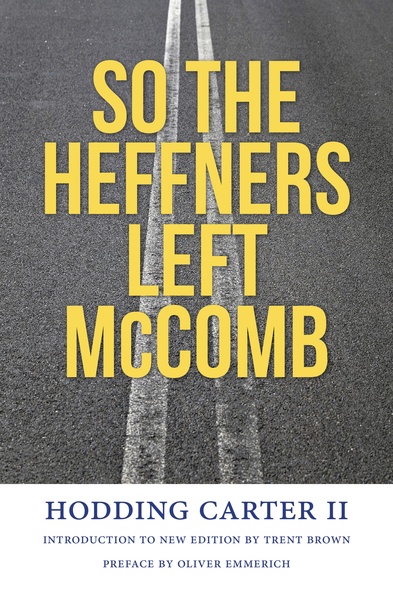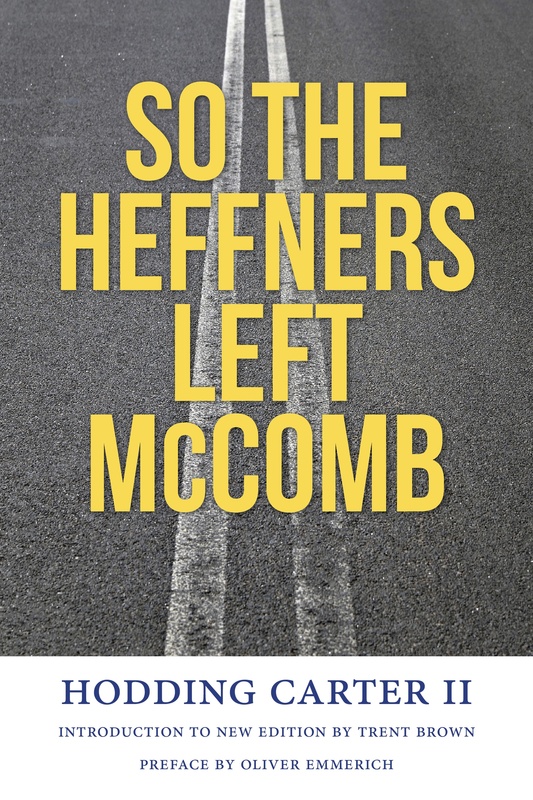
So the Heffners Left McComb
On Saturday, September 5, 1964, the family of Albert W. "Red" Heffner Jr., a successful insurance agent, left their house at 202 Shannon Drive in McComb, Mississippi, where they had lived for ten years. They never returned. In the eyes of neighbors, their unforgiveable sin was to have spoken on several occasions with civil rights workers and to have invited two into their home. Consequently, the Heffners were subjected to a campaign of harassment, ostracism, and economic retaliation shocking to a white family who believed that they were respected community members.
So the Heffners Left McComb, originally published in 1965 and reprinted now for the first time, is Greenville journalist Hodding Carter’s account of the events that led to the Heffners’ downfall. Historian Trent Brown, a McComb native, supplies a substantial introduction evaluating the book’s significance. The Heffners’ story demonstrates the forces of fear, conformity, communal pressure, and threats of retaliation that silenced so many white Mississippians during the 1950s and 1960s. Carter’s book provides a valuable portrait of a family who was not choosing to make a stand, but merely extending humane hospitality. Yet the Heffners were systematically punished and driven into exile for what was perceived as treason against white apartheid.
Hodding Carter II (1907-1972) was a prominent journalist and author. He was awarded the Niemen Fellowship from Harvard University and the 1946 Pulitzer Prize for his editorials. Author of over fifteen books, he is remembered for his outspoken progressive political views following World War II. Trent Brown is associate professor of American studies at the Missouri University of Science and Technology. He is author of three books including, with Ed King, Ed King’s Mississippi: Behind the Scenes of Freedom Summer, published by University Press of Mississippi. Oliver Emmerich (1896–1978) is best known as one of a handful of white Mississippi journalists who publicized and criticized the worst of his community’s actions in opposition to the civil rights movement.




